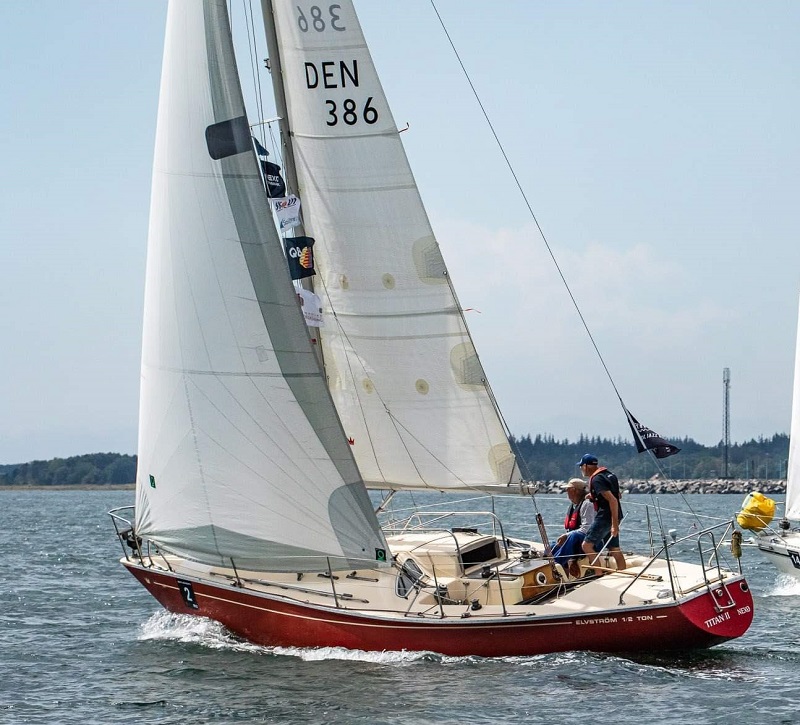Review of Elvstrøm 1/2 Ton

Basic specs.

Looking for a new boat? Find a Elvstrøm 1/2 Ton or similar boat for sale

Sailing characteristics
This section covers widely used rules of thumb to describe the sailing characteristics. Please note that even though the calculations are correct, the interpretation of the results might not be valid for extreme boats.
What is Capsize Screening Formula (CSF)?
The capsize screening value for Elvstrøm 1/2 Ton is 2.14, indicating that this boat would not be accepted to participate in ocean races.
What is Theoretical Maximum Hull Speed?
The theoretical maximal speed of a displacement boat of this length is 6.6 knots. The term "Theoretical Maximum Hull Speed" is widely used even though a boat can sail faster. The term shall be interpreted as above the theoretical speed a great additional power is necessary for a small gain in speed.
The immersion rate is defined as the weight required to sink the boat a certain level.
The immersion rate for Elvstrøm 1/2 Ton is about 152 kg/cm, alternatively 851 lbs/inch.
Meaning: if you load 152 kg cargo on the boat then it will sink 1 cm.
Alternatively, if you load 851 lbs cargo on the boat it will sink 1 inch.
Sailing statistics
This section is statistical comparison with similar boats of the same category. The basis of the following statistical computations is our unique database with more than 26,000 different boat types and 350,000 data points.
What is Motion Comfort Ratio (MCR)?
The Motion Comfort Ratio for Elvstrøm 1/2 Ton is 18.2.
What is L/B (Length Beam Ratio)?
The l/b ratio for Elvstrøm 1/2 Ton is 3.11.
What is Displacement Length Ratio?
The DL-ratio for Elvstrøm 1/2 Ton is 220 which categorizes this boat among 'light crusers & offshore racers'.
What is Relative Speed Performance?
The Relative Speed Performance for Elvstrøm 1/2 Ton is 54
Maintenance
If you need to renew parts of your running rig and is not quite sure of the dimensions, you may find the estimates computed below useful.
| Usage | Length | Diameter | ||
| Jib sheet | 9.6 m | (31.6 feet) | 12 mm | (1/2 inch) |
| Genoa sheet | 9.6 m | (31.6 feet) | 12 mm | (1/2 inch) |
| Mainsheet | 24.1 m | (79.0 feet) | 12 mm | (1/2 inch) |
| Spinnaker sheet | 21.2 m | (69.5 feet) | 12 mm | (1/2 inch) |
This section shown boat owner's changes, improvements, etc. Here you might find inspiration for your boat.
Do you have changes/improvements you would like to share? Upload a photo and describe what to look for.
We are always looking for new photos. If you can contribute with photos for Elvstrøm 1/2 Ton it would be a great help.
If you have any comments to the review, improvement suggestions, or the like, feel free to contact us. Criticism helps us to improve.
